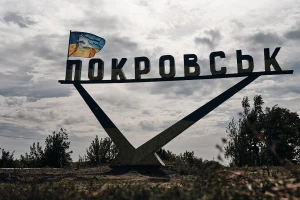
Russian defeat at Lyman fuels more confusion, negativity in Russia's infospace than withdrawal from Kyiv, Kharkiv - ISW
Analysts at the Institute for the Study of War believe that Russian army's defeat at Lyman is triggering more confusion and negativity in the Russian information space than their withdrawal from Kyiv, Kharkiv or Zmiinyi (Snake) Island.
The ISW states in report dated October 2.
Thus, the announcement of partial mobilization destroyed the Kremlin's attempts to portray the war as limited and generally successful, and also made the consequences of the defeat in Kharkiv region and then Donetsk region open to the wider Russian public.
Experts emphasize that Russia's defeat near Liman caused even more confusion and negativity in the Russian information space than the withdrawal of Russians from Kyiv, Snake Island or even Kharkiv.
"Lyman's influence is probably greater because Russians are now afraid of being mobilized to solve problems on the battlefield. The independent Russian sociological organization Levada Center found that more than half of respondents fear that the war in Ukraine could lead to general mobilization. Most respondents did not express such concerns in February 2022. Russians are also likely to see the Kremlin's current partial mobilization – which was supposed to be limited to the call-up of qualified reservists – in an illegal and deceptive manner that risks mobilizing more people to strengthen the crumbling front line," the Institute notes.
Currently, the Russian information space has significantly deviated from the narratives of the Kremlin and the Russian Ministry of Defense that the situation is generally under control, analysts note. Criticism of the military command began to appear on the air of federal channels.
"Putin relies on his control of the information space in Russia to protect his regime far more than the kind of massive apparatus of oppression that the Soviet Union used, making the messiness of the information space potentially even more dangerous for Putin. Until recently, Putin did not even implemented the extreme censorship that was characteristic of the Soviet state. Instead, the Russian news space relied on journalists and television talk show hosts to enforce self-censorship, especially after the Kremlin passed a law that could punish Russians with up to 15 years in prison for "discrediting the army ". Thus, the criticism on Russian federal TV channels of military failures and failures of partial mobilization, especially after the defeat at Liman, is bold and very unusual for Kremlin propaganda shows. This first brought the tone and content of some of the media bloggers criticizing Russia's actions in the war in the homes of ordinary Russians through the Kremlin's official channels", - push it in ISW.
As you know, Chechen leader Ramzan Kadyrov and businessman, owner of Wagner PMC Yevgeny Prigozhin criticized the Russian military command after the liberation of Lyman by Ukrainian soldiers in the Donetsk region, undermining Putin's authority.
- News














































